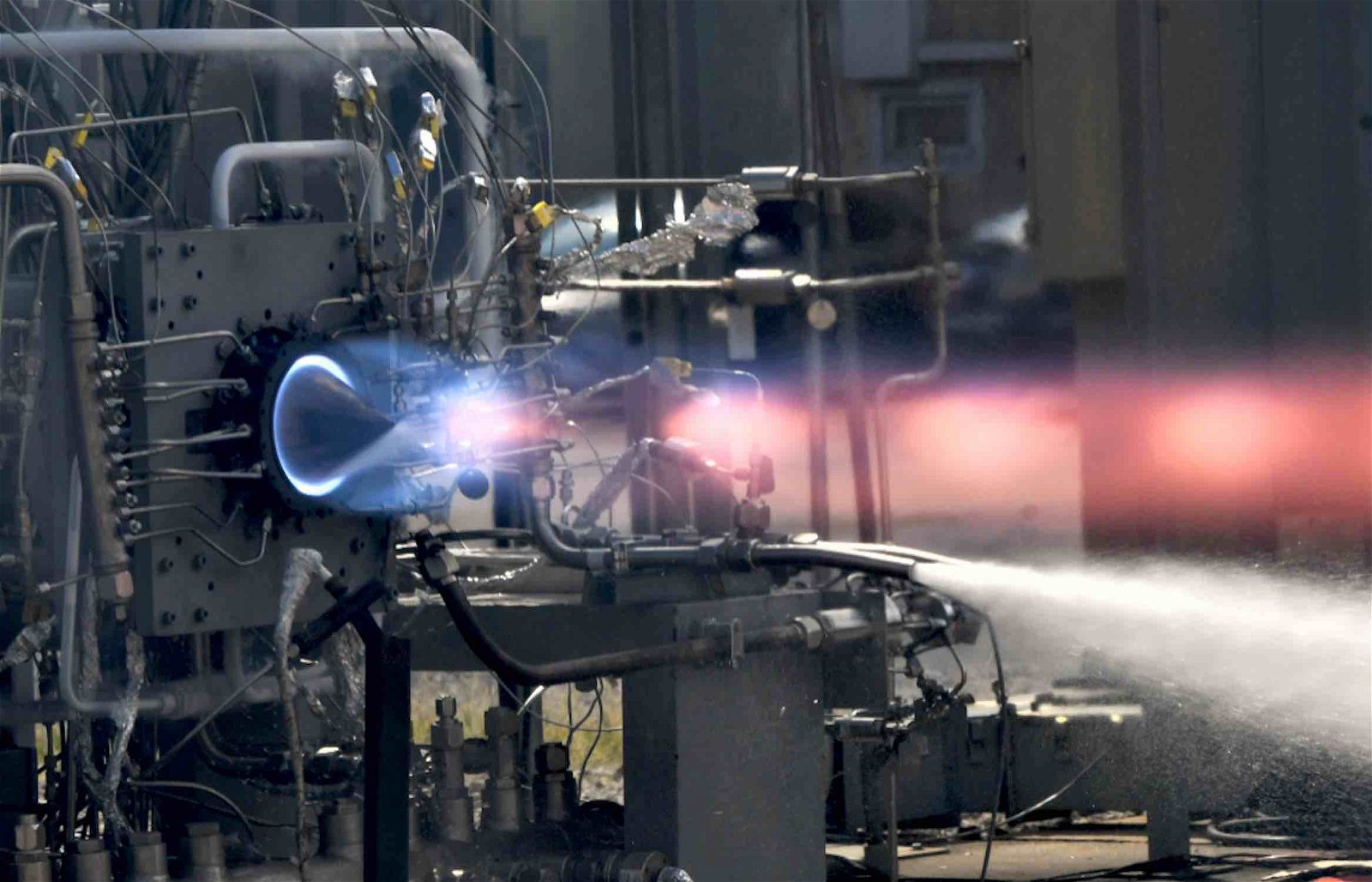NASA has awarded a $900k grant to researchers from the University of Texas at Arlington (UTA) to develop advanced designs for rotating detonation rocket engines (RDRE).
First developed by researchers at the University of Central Florida (UCF) in 2020, RDREs aim to replace upper-stage rocket engines in conventional launches with a whole new system that allows spacecraft to become lighter, travel farther, and be more efficient than current designs.
“Detonation is very fast combustion,” explained Liwei Zhang, an assistant professor in the Department of Mechanical and Aerospace Engineering (MAE)and the lead researcher on the NASA-funded effort. “Inside an RDRE, detonation waves spin around in a circle at supersonic speeds. Compared to conventional engines that rely on regular combustion, an RDRE has a theoretically higher efficiency and can be made smaller and more compact.”
Under the terms of the grant, Zhang and her colleagues will focus on improving RDREs at the component level. This includes increasing the performance and efficiency of injectors, combustors, and nozzles.
“We will also study system-level configurations for testing,” Zhang added. “It’s a collaborative effort among theoretical analyses, computational simulations, and experimental measurements to assess and improve the performance of this type of engine.”
Rotating Detonation Rocket Engines Extremely Complex
When the UCF researchers first developed the RDRE, they said the technology was considered “impossible.” That’s because the dynamics of making an RDRE function efficiently are incredibly complex.
“The rotating detonations are continuous, Mach 5 explosions that rotate around the inside of a rocket engine,” they explained at the time, “and the explosions are sustained by feeding hydrogen and oxygen propellant into the system at just the right amounts.”
That challenge has haunted efforts to design a working RDRE since the 1950s. Still, the UCF researchers were successful, proving that a technology first dreamed about for decades was finally ready for realistic consideration by mission planners. In fact, the UCF team even observed that their positive results were already “having repercussions across the international research community,” ultimately leading to efforts like this one.
Now, NASA has put the UTA researchers on the task of improving the work done only three years ago. And if successful, the space agency may finally reach its goal of one day using this propulsion technology in space.
Game-Changing Propulsion Technology Could Dramatically Impact Space Travel, Careers in Space Science
Among the study’s co-investigators, including Grace Brannon and Monica Mengqi Zhan, assistant professors in the Department of Communication, is long-time veteran Frank Lu. Notably, Lu and the late Professor Don Wilson started the Aerodynamics Research Center (ARC), where the new research will occur, over 37 years ago.
“(I am) glad to be recognized by NASA for our expertise in rotating detonation engines that can play a role in this game-changing technology,” said Liu in response to the new award.
The UTA researchers also point out that their project also has educational goals. The top of that list is creating opportunities for “underrepresented communities of students” who don’t usually see a career in space science as viable.
“We want to recruit and retain them and empower them to establish careers in space,” Zhang said. “We want younger people to understand that there are ways for them to enter this track.”
Zhang notes that many people consider space education as an “elite type of study” and become discouraged from pursuing that type of career. So, along with executing their goals of improving rotating detonation rocket engines, the UTA team says that they want to help those students overcome the “mental obstacle” and give a career in space science a chance.
“If you have an interest, follow your heart,” Zhang says.
Christopher Plain is a Science Fiction and Fantasy novelist and Head Science Writer at The Debrief. Follow and connect with him on X, learn about his books at plainfiction.com, or email him directly at christopher@thedebrief.org.

